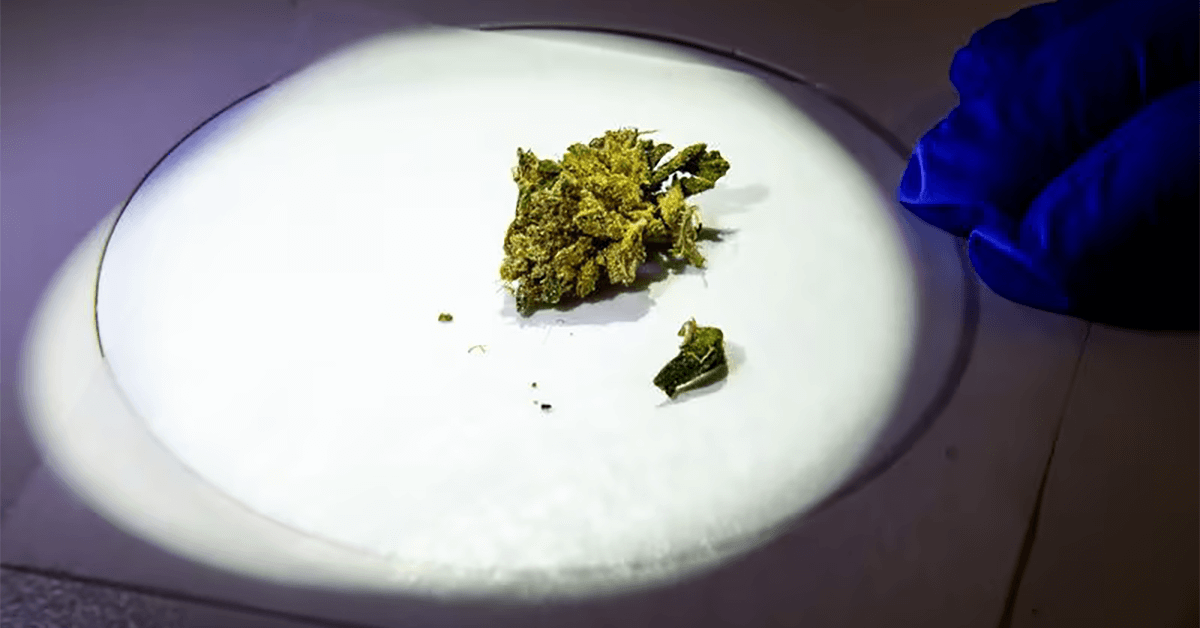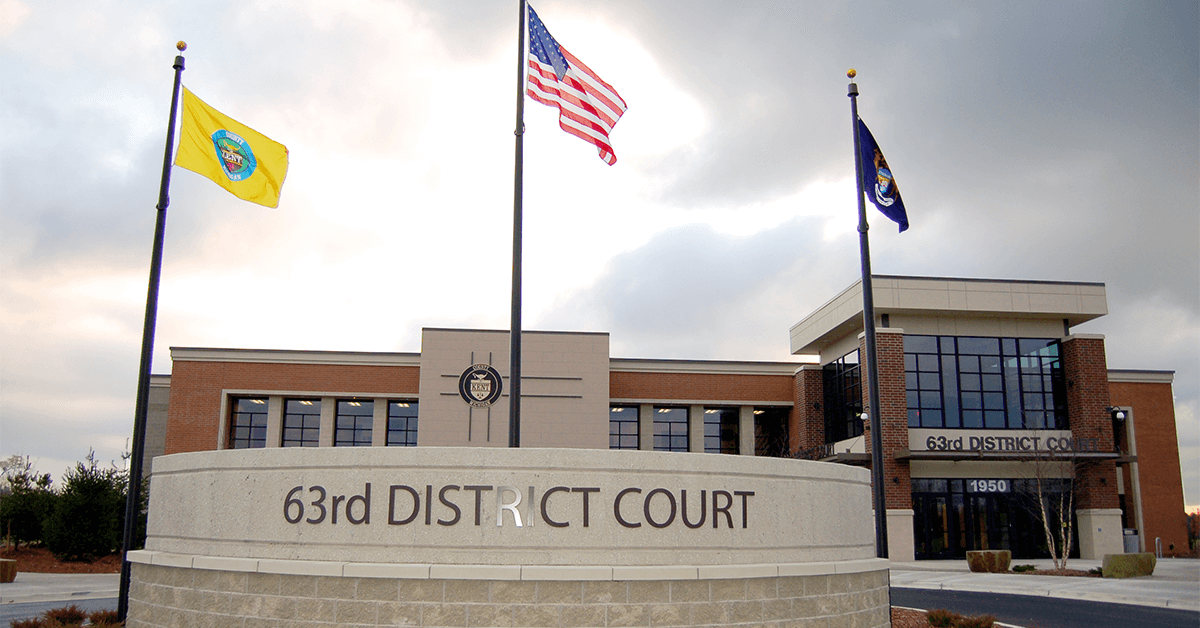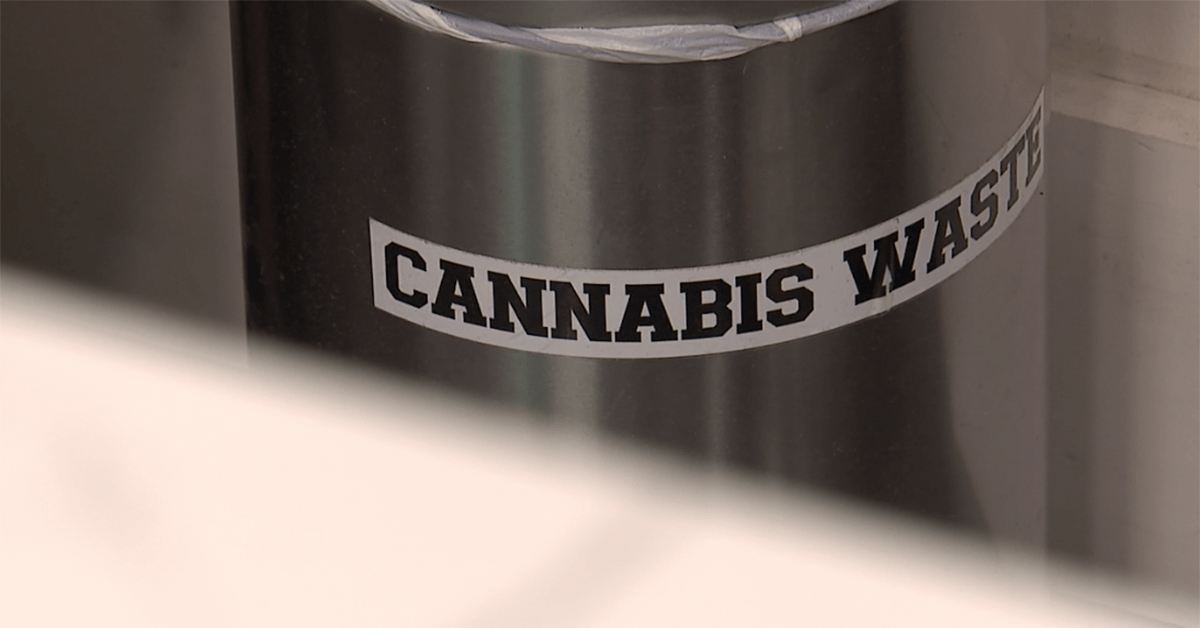Man Faces Felony Charges for Transporting 1000+ THC Vapes Across State Lines (Again)

Mark Crowley, a 28-year-old resident of the Chicago area, is facing severe legal consequences for allegedly transporting over 1,000 THC vape cartridges across state lines, an action that not only violates drug laws but also marks a repeat offense for Crowley. This recent arrest in La Porte County, Indiana, echoes a similar incident from 2019 when Crowley was apprehended for carrying marijuana and related products in his vehicle during a traffic stop in Pennsylvania.
In the latest incident, Crowley was charged in La Porte Superior Court 1 with dealing in a Schedule I, II, or III substance as a Level 2 felony, potentially facing a prison sentence of 10 to 30 years. The charges stem from a routine traffic stop on Interstate 94 for improper lane usage and speeding. Crowley's nervous demeanor and evasive answers about his trip from Michigan raised the officer's suspicions, leading to the discovery of two large boxes filled with 600 THC vape cartridges each in his trunk. This significant quantity suggests intent to distribute, as it far exceeds personal consumption levels.
Crowley's prior encounter with law enforcement occurred in 2019, when Pennsylvania State Police arrested him on the Pennsylvania Turnpike for speeding. During the stop, officers detected the smell of marijuana emanating from his vehicle. This led to the discovery of various forms of marijuana and related paraphernalia, including vapes, sealed cans of marijuana, liquid marijuana, and marijuana-infused chocolate bars. Crowley faced multiple charges, including felony manufacture, delivery, or possession with intent to manufacture or deliver, alongside misdemeanor charges for possession of drug paraphernalia and driving under the influence.
The repetition of such offenses underscores the risks associated with interstate transportation of marijuana products, particularly from states like Michigan, where they can be purchased legally and at lower prices, to states where such activities remain illegal. Crowley's actions reflect a broader challenge faced by law enforcement in managing the implications of disparate state marijuana laws, especially as more states move towards legalization in various forms.
These incidents serve as cautionary tales about the severe legal repercussions of transporting marijuana products across state lines, a felony offense that carries significant penalties, including lengthy prison sentences. They highlight the ongoing legal and societal challenges posed by the patchwork of marijuana legislation in the United States.
Michigan's Marijuana Industry Grapples with Potency Testing Integrity

In Michigan's bustling marijuana industry, the quest for higher THC potency has not only influenced consumer preferences but also raised concerns about the integrity of potency testing. Industry insiders and regulators have voiced worries about the potential manipulation of THC test results, which are pivotal in determining the price and profitability of marijuana products across the state.
The significance of THC potency in setting prices has led to suspicions of unethical practices among some testing labs and marijuana producers. Allegations suggest a "pay-to-play" scheme, where higher potency figures are reported in exchange for financial benefits, disadvantaging labs committed to accurate testing.
Ben Rosman, co-founder and CEO of PSI Labs in Ann Arbor, one of Michigan's first licensed marijuana safety testing facilities, observed firsthand how prioritizing accuracy in test results could negatively impact business. PSI Labs, known for its commitment to reliable data, ultimately closed its doors after eight and a half years, underscoring the challenging dynamics between accuracy and market demands.
The phenomenon of "lab shopping," where producers seek out labs that report higher THC levels to remain competitive, highlights a systemic issue within the industry. Despite the common knowledge among budtenders and retailers that THC potency is not the sole indicator of marijuana's effects, consumer behavior indicates a strong preference for higher potency products. This trend has led to an increase in strains boasting THC levels above 28%, while those with lower potency struggle to find a place in the market.
David Egerton, laboratory manager at Infinite Chemical Analysis Labs in Jackson, Michigan, has encountered direct requests from customers seeking inflated potency results, emphasizing the pressure labs face to retain clients by bending the rules.
The closure of PSI Labs and the challenges it faced in maintaining a commitment to accurate testing reflect a broader issue within the cannabis industry: the cycle of potency inflation. This cycle perpetuates the demand for higher THC levels, encouraging producers to seek out labs that will report such results, ultimately compromising the integrity of the testing process.
A study examining THC potency accuracy in Colorado's marijuana market revealed that a significant portion of tested samples had potency levels more than 15% lower than stated on packaging, suggesting that potency inflation may be a widespread problem in the U.S. cannabis industry.
In Michigan, the Cannabis Regulatory Agency (CRA) has taken steps to address concerns about THC potency testing, particularly focusing on the practices of Viridis Laboratories. The CRA's investigations and ongoing legal battles with Viridis highlight the complexities of standardizing testing methods and ensuring accurate results.
The CRA plans to open a state-run lab by the end of 2024, aiming to audit private lab results and contribute to the development of standardized testing procedures. However, achieving lasting change in the industry may require more than regulatory oversight and the establishment of reference labs. Stakeholders like Rosman believe that legal actions, similar to lawsuits filed in California over potency inflation, might be necessary to prompt significant reforms.
As Michigan's marijuana market continues to evolve, the challenges surrounding THC potency testing underscore the need for a balanced approach that ensures consumer safety and confidence while fostering a competitive and ethical industry.
Tragic Infant Death Linked to Substance Use; Mother Faces Charges in Kent County

In a distressing incident in Kent County, a 2-month-old infant tragically lost his life, leading to serious charges against his mother. Jennifer Louise Mast, 39, was arraigned on charges of involuntary manslaughter and second-degree child abuse on January 31st at the 63rd District Court in Kent County.
This case, which has garnered significant attention, stems from a Kent County Sheriff's Office investigation in 2023. The critical events unfolded in the early hours of August 25th, when sheriff's deputies received an emergency call about an unresponsive infant at a residence in Solon Township.
Upon arriving at the scene around 6:38 a.m., deputies immediately noticed a strong odor of burnt marijuana within the house. Additionally, visible marijuana paraphernalia and an empty vodka bottle on the dining table were reported, as detailed in an affidavit of probable cause for complaints.
During the on-scene investigation, detectives interviewed Mast. She disclosed consuming alcohol, including two mixed vodka drinks and a shot, and admitted to smoking marijuana shortly before retiring to bed. At that time, Mast stated, the baby was already asleep in his bouncy seat.
The sequence of events as recounted by Mast indicates that she attended to the baby later in the night, feeding and changing him, before laying him in bed with her. The next morning, the baby's father, who was also in the home, woke up Mast as he prepared for work. It was then that Mast discovered the baby was unresponsive. Despite immediate CPR attempts by Mast and subsequent emergency response efforts, the baby could not be revived.
The Kent County Medical Examiner's Office determined the cause of death to be asphyxiation by suffocation.
Following these tragic events, Mast is scheduled for further court appearances, including a probable cause conference on February 14th and a preliminary examination on February 21st. She has been released on bond as of the afternoon of January 31st.
Michigan's CRA Emphasizes Strict Marijuana Waste Disposal Protocols

In response to reports of unauthorized removal of discarded marijuana products from facility dumpsters, Michigan's Cannabis Regulatory Agency (CRA) issued a reminder to licensed cannabis businesses about mandatory waste disposal practices. This directive emphasizes the need for marijuana products and plant waste to be rendered unusable and unrecognizable, adhering to strict disposal methods.
The CRA outlines that marijuana waste should be disposed of in a secure waste receptacle and can only be processed by:
- Licensed municipal solid waste landfills
- Registered composting facilities with specific approval for marijuana waste
- Approved anaerobic digesters
- Permitted municipal solid waste or hazardous waste incinerators within Michigan
Nick Hannawa, Chief Legal Counsel of PUFF Cannabis Company, which operates 10 locations in Michigan, elaborated on their rigorous disposal procedures. The process involves breaking down the waste product (expired or damaged) using substances like vinegar, cat litter, and sometimes cement, to ensure it is unrecognizable. This process is thoroughly documented and reported to the state. A specialized waste management company is then tasked with the off-site disposal of these materials.
Hannawa emphasized the importance of adhering to these regulations, highlighting the potential risks of improperly disposed marijuana products, such as accidental consumption by children or individuals not authorized to possess them. The intricate disposal process, though laborious, is essential for compliance with state laws and ensuring public safety.
Michigan's CRA's reinforcement of these disposal guidelines underscores the importance of responsible waste management in the cannabis industry, reflecting the state's commitment to public health and safety, as well as environmental stewardship.
Wyatt Davis, Former Michigan Swimmer, Suspended for Cannabis Violation

In a recent announcement by the United States Anti-Doping Agency (USADA), Wyatt Davis, a former World Junior champion and Michigan Wolverine, has been handed a three-month suspension following a positive test for a cannabis-related substance. The test was conducted in June 2023, and the suspension was officially declared on January 16th, 2024.
At 22 years old, Davis was found to have levels of 11-nor-9-carboxy-tetrahydrocannabinol (Carboxy-THC), a primary psychoactive component of cannabis, marijuana, and hashish, exceeding the permissible limit in a drug test. This test was administered during the U.S. National Championships on June 30th, 2023.
Davis, known for his exceptional swimming prowess, demonstrated notable performances at the U.S. Nationals. He secured third place in the men's 50 backstroke with a time of 24.62 seconds and sixth in the 100 backstroke at 53.43 seconds, both personal bests. Additionally, he finished 18th in the 200 backstroke and 34th in the 100 butterfly.
The implications of his positive test are significant. Davis has been stripped of all competitive results commencing from June 30th, 2023. This decision particularly affects his 100 backstroke performance at the Nationals, as it falls under the disqualification timeline. His performances in the 200 backstroke, 50 backstroke, and 100 butterfly remain unaffected as they occurred before June 30.
The three-month suspension period for Davis began on January 2nd, 2024, the date he accepted the sanction. During the interim period, while the case was under review, USADA found that Davis breached his provisional suspension by participating in activities under the governance of USA Swimming. Consequently, the time spent under provisional suspension will not be credited towards his ineligibility period.
Davis argued that his use of cannabis occurred out-of-competition and was not related to enhancing sport performance. This claim, accepted by USADA, allowed for a reduction in his sanction, adhering to the provisions of the World Anti-Doping Code. This code classifies THC as a "Substance of Abuse," permitting reduced penalties under certain circumstances.
Since the U.S. Nationals, Davis has not participated in any competitive swimming events, although he is still listed as a senior on the University of Michigan's team roster for the 2023-24 season. His suspension will conclude on April 2nd, 2024, resulting in him missing the entire college swimming season.
This case mirrors a similar incident from 2021 involving former University of Texas sprinter Tate Jackson, who received a one-month suspension from USADA for a positive THC test. Notably, athletes can have their suspension period reduced to one month if they successfully complete a Substance of Abuse treatment program approved by USADA.
Before joining the University of Michigan in the 2020-21 season, Davis had a distinguished career, including a gold medal in the boys' 200 backstroke and a silver in the 50 backstroke at the 2019 World Junior Championships in Indianapolis.
Michigan Woman Sues Cannabis Firm Over Wrongful Termination and Medical Leave Dispute

In a significant legal confrontation within Michigan's legal system, a lawsuit has been filed against the cannabis conglomerate TerrAscend Corp. by a woman alleging wrongful termination following her requests for medical leave accommodations. The case, which was initiated in a federal court in Michigan, highlights complex issues surrounding workplace accommodations and disability rights.
Lawsuit Claims Against TerrAscend Corp. Emerge Amid Health Concerns
Kristina Emiry, the plaintiff in this case, has brought forward a lawsuit claiming wrongful termination by TerrAscend Corp., a prominent figure in the cannabis industry. Emiry alleges that her dismissal came after she sought accommodations for a chronic medical condition. According to the lawsuit, Emiry was employed by a company that was subsequently acquired by TerrAscend Corp. Around the same time, she began to experience a chronic health condition that significantly impacted her work life.
Allegations of Workplace Retaliation and Discrimination
The lawsuit details Emiry's attempts to navigate her medical condition while maintaining her employment. She claims to have requested a protected medical leave under the Family and Medical Leave Act (FMLA), which was initially approved until mid-August of the following year. Despite this approval, Emiry alleges she received emails from her manager, Luke Espinoza, which threatened her employment and created a hostile work environment.
Emiry's efforts to seek clarity on her job responsibilities and her preference for written communication due to her condition were reportedly met with silence. Her termination, allegedly for attendance issues, came abruptly, raising questions about the company's adherence to federal and state laws regarding employee rights and accommodations.
Legal Arguments and TerrAscend's Silence
The lawsuit against TerrAscend Corp. raises several legal issues, including alleged interference with FMLA rights, retaliation, and violations of Michigan's Persons with Disabilities Civil Rights Act of 1976, as well as the Fair Labor Standards Act. Emiry's legal representation, led by Noah Hurwitz of Hurwitz Law PLLC, argues that the case exemplifies a broader issue of employers failing to engage in an interactive process to accommodate medical conditions as required by law.
TerrAscend Corp. has not publicly responded to the allegations, and efforts to reach the company for comment have been unsuccessful. The silence from TerrAscend Corp. adds an element of anticipation as the legal proceedings unfold.
The Broader Implications of the Lawsuit
This legal battle is not just about one individual's allegations of wrongful termination; it underscores the critical importance of understanding and respecting employees' rights to medical leave and accommodations. It also highlights the potential legal consequences for companies that fail to comply with federal and state laws designed to protect workers with disabilities.
The case, filed as Emiry v. TerrAscend Corp., is being closely watched for its implications on employment law, particularly in the evolving cannabis industry in Michigan and beyond. As the proceedings advance, they promise to shed light on the challenges and responsibilities of employers in accommodating employees with health conditions.


 Helpful Links
Helpful Links